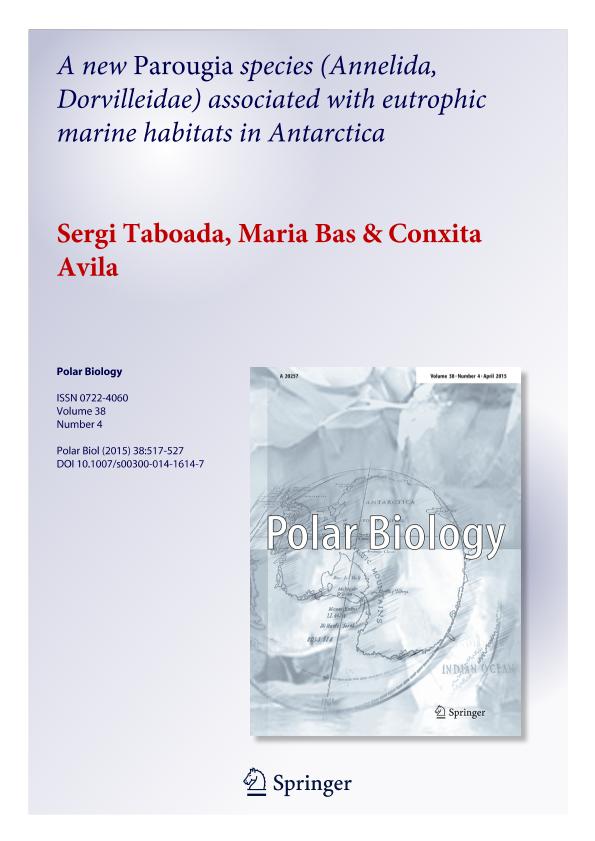Artículo
A new Parougia species (Annelida, Dorvilleidae) associated with eutrophic marine habitats in Antarctica
Fecha de publicación:
12/2015
Editorial:
Springer
Revista:
Polar Biology
ISSN:
0722-4060
e-ISSN:
1432-2056
Idioma:
Inglés
Tipo de recurso:
Artículo publicado
Clasificación temática:
Resumen
In contrast to other areas of the planet, very little is known about Antarctic marine invertebrates asso- ciated with eutrophic marine benthic areas. Recently, several studies investigated this fauna by experimentally deploying whale bones, leading to the discovery of new opportunistic polychaetes. To investigate the Antarctic organisms associated with these substrates we experimen- tally deployed whale bones in the shallow waters of Deception Island (South Shetland Islands). We present here the formal description of Parougia diapason sp. nov., a dorvilleid found in remarkable abundance at some of the bones deployed for 1 year. This new Parougia species, the second described in the Southern Ocean, also occurred in moderate numbers at nearby organic-rich sediments close to the Spanish Antarctic Base, indicating that this may be an opportunistic species. P. diapason sp. nov. clearly dif- fers from the rest of congeneric taxa described in the lack of dorsal cirrus as well as in other morphological characters related to the jaw apparatus and the shape of parapodial lobes. Phylogenetic analyses show that P. diapason sp. nov. is sister to the rest of the congeneric taxa whose sequences are currently available. The finding of P. diapason sp. nov. in an area which has been previously investigated using similar experiments suggests that a lot remains to be discovered in Antarctic marine benthic invertebrate communities inhabiting eutrophic habitats.
Archivos asociados
Licencia
Identificadores
Colecciones
Articulos(CADIC)
Articulos de CENTRO AUSTRAL DE INVESTIGACIONES CIENTIFICAS
Articulos de CENTRO AUSTRAL DE INVESTIGACIONES CIENTIFICAS
Citación
Taboada, Sergi; Bas López, Maria; Avila, Conxita; A new Parougia species (Annelida, Dorvilleidae) associated with eutrophic marine habitats in Antarctica; Springer; Polar Biology; 38; 4; 12-2015; 517-527
Compartir
Altmétricas




